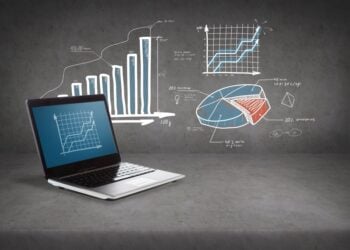The fundamental concept of damages in civil lawsuits is to make the plaintiff whole, assuming liability can be established. Whether the forensic economist works for the plaintiff or the defendant, this basic idea is the same.
But-For Scenario
An important step in making the plaintiff whole is to describe the situation the plaintiff would have been in if nothing had happened. What would the plaintiff’s circumstances be but for the motor-vehicle accident, the breach of contract, the unfair trade practice, or the wrongful termination?
Forensic economists refer to this as the “but-for scenario.”
The but-for scenario is like the control group in a scientific experiment, except that we can’t observe it. If someone was hit by a car, we can’t observe him in the scenario in which he wasn’t hit by the car. And yet we can’t calculate an economic loss unless we can say what the loss is from.
In many cases, defining the but-for scenario is straightforward. If a person was an electrician before her death, she probably would have continued working as an electrician. However, it’s not always so clear cut.
Medical Malpractice
Medical malpractice cases can create tricky but-for scenarios because the plaintiff who suffered from the alleged malpractice was sick or injured to begin with. Even with proper medical care, the person might not have returned to perfect health or to her previous occupation.
I once worked on a case in which an Army paratrooper was injured in a jump. Due to his injuries, the best he could have hoped for from successful medical treatment was a desk job. He wasn’t going to return to his previous activities. His but-for scenario was not more years as a paratrooper.
Prison inmates occasionally sue for malpractice they claim took place in prison. But even if nothing had gone wrong, they still would have returned to the workforce as convicted felons, which generally affects one’s ability to find work. This is especially true for people who worked in fields requiring high levels of trust, such as the financial industry. Someone who used to work as a stockbroker or fund manager would probably not work in the same job after a conviction for embezzling. That person’s but-for scenario would be in some other industry.
Medical conditions can alter the but-for scenario in non-malpractice cases. In a wrongful death case, I learned that the decedent had been on a waiting list for a lung transplant. As it happens, recipients of successful lung transplants have significantly reduced life expectancies. If he hadn’t died, his but-for scenario would have been a relatively short remaining life.
In another case, the plaintiff had a pre-existing eye disease that was unrelated to her lawsuit. According to an ophthalmology expert, she faced an increasing chance of blindness in each successive year. Her but-for scenario involved a significant risk of disability.
Shifting Sands
Sometimes, the but-for scenario is complicated by shifting economic sands beneath the plaintiff. I recall one plaintiff whose entire industry was in flux. Due to factors beyond his control (and unrelated to his lawsuit), his pre-injury occupation was becoming less secure and lucrative. The but-for scenario involved a lower future income than he’d earned in the past. In a different case, the opposite happened. The plaintiff’s employer said that but for her injury, she would have received a big promotion. Her but-for scenario required an upward adjustment in her earning capacity.
Commercial cases are ripe for interesting but-for scenarios. One plaintiff company suffered a significant business interruption as it embarked upon an uncertain new phase of growth. The plaintiff’s expert asserted that the company’s product would have become a national brand and made millions. My opinion was that retail is full of surprises, and the product might have failed to appeal widely to consumers. My analysis considered both outcomes as possibilities. In a sense, the but-for scenario was a coin flip. Sometimes, that’s the best you can do.
Interesting but-for scenarios pop up in work for both plaintiffs and defendants, involving both lost earnings and lost profits. Making the plaintiff whole sounds simple, but you really have to keep your eye on the ball.










